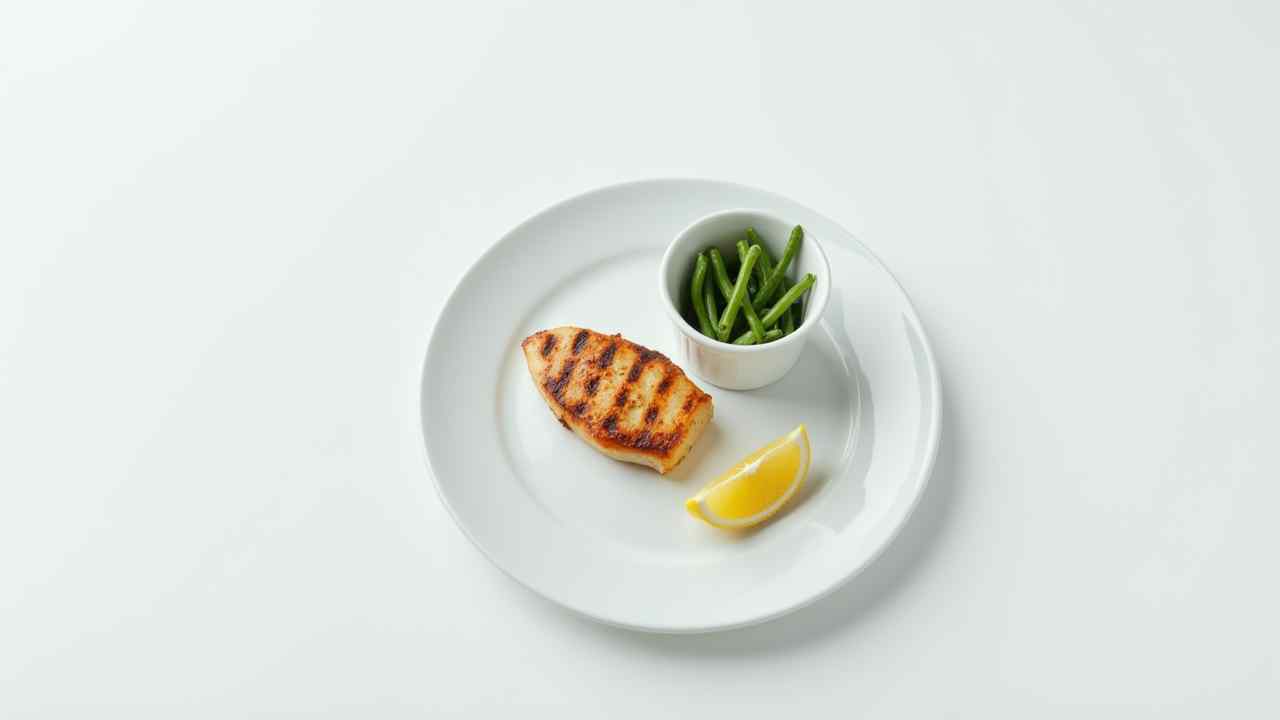
🩺 A Medically Supervised 1000-Calorie Diet Plan: Risks & Sample Menu
🩺 A Doctor's View: What is a 1000-Calorie Diet Plan? (Safety First) 🩺
❗ IMPORTANT MEDICAL WARNING: A 1000-calorie diet plan is a Very Low-Calorie Diet (VLCD). It is not safe or appropriate for most people. Attempting this diet without strict medical supervision can lead to serious health complications. This article is for informational purposes only and is not medical advice.
You may be curious about rapid weight loss. A 1000-calorie diet seems like a fast solution. However, this level of calorie restriction is a medical intervention. It is not a general-purpose weight loss plan.
This guide will explain what this diet entails. We will cover its clinical uses. Most importantly, we will discuss its significant risks. Your health and safety must always come first. Please read this with caution.
🤔 Who Might Be Prescribed a 1000-Calorie Diet?
This type of diet is reserved for specific situations. A doctor would only prescribe it after a thorough evaluation. It is not for someone trying to lose a few pounds. It is a short-term clinical tool.
A VLCD may be used for individuals with obesity. This usually means a Body Mass Index (BMI) over 30. It is often for those with weight-related health problems. This includes type 2 diabetes or severe joint pain.
Sometimes, it is used before a medical procedure. For example, it can help with weight loss before bariatric surgery. In all cases, a healthcare team must monitor the person. This is not a do-it-yourself diet.
⚠️ What Are the Serious Risks of a VLCD?
Restricting calories this severely carries major risks. Your body needs a certain amount of energy to function. Dropping to 1000 calories can cause significant problems. It is crucial to understand these dangers.
Can It Cause Nutrient Deficiencies?
Yes. It is extremely difficult to get all essential nutrients from so few calories. You can easily become deficient in vitamins and minerals. This can affect everything from your energy to your immune system.
What About Muscle Loss?
When you lose weight this quickly, you lose muscle. You are not just losing fat. Losing muscle is unhealthy. It slows down your metabolism, making it harder to keep weight off later.
Are There Other Side Effects?
Many side effects are common on a VLCD. These can include extreme fatigue, dizziness, and hair loss. Constipation is also frequent due to low intake. A serious risk is the development of gallstones.
✅ What Does a 1000-Calorie Diet Plan Focus On?
When prescribed by a doctor, the diet is carefully designed. The goal is to maximize nutrition. It also aims to minimize the risks as much as possible. This requires a very specific nutritional strategy.
Why is Protein a Priority?
Protein is the top priority. A high protein intake helps reduce muscle loss. Every meal in a medically designed 1000-calorie diet plan will center around a lean protein source. This includes chicken, fish, and egg whites.
How Are Nutrients Maximized?
To get the most vitamins and minerals, the diet is full of non-starchy vegetables. These foods are low in calories but high in nutrients. Think leafy greens, broccoli, and bell peppers.
What About Carbs and Fats?
Carbohydrates and fats are severely limited. Only a small amount of complex carbs may be included. A tiny portion of healthy fats is necessary. This is for hormone function and absorbing certain vitamins.
🍽️ What is a Sample 1000-Calorie Meal Plan?
❗ Disclaimer: This is only an example of what a medically supervised plan might look like. It is not a recommendation to follow. Notice how small the portions are and how quickly calories add up.
- Breakfast (approx. 250 calories): 2 scrambled eggs with a cup of spinach.
- Lunch (approx. 300 calories): A large salad with 4 ounces of grilled chicken breast, mixed greens, cucumber, and a light vinaigrette made with lemon juice.
- Dinner (approx. 350 calories): 4 ounces of baked cod with 2 cups of steamed green beans and broccoli.
- Snack (approx. 100 calories): 1 small apple.
⭐ Why is Professional Guidance Non-Negotiable?
We cannot stress this enough. A 1000-calorie diet plan requires a medical team. A doctor must first determine if it is safe for you. They will need to run tests and review your health history.
A registered dietitian is also essential. They will create a meal plan for you. It will be designed to prevent nutrient deficiencies. They also provide support and make adjustments as needed.
Finally, your team will monitor you for side effects. Regular check-ins are necessary. This ensures your safety throughout the process. It is a serious medical treatment.
❤️ What is the Final Verdict on the 1000-Calorie Diet?
The final verdict is clear. The 1000-calorie diet plan is a clinical tool. It is not a safe or sustainable lifestyle diet. For the vast majority of people, the risks far outweigh any benefits.
Attempting this diet on your own can be dangerous. It can harm your metabolism and your health. Sustainable weight loss is achieved through moderate changes. A more realistic calorie goal is safer and more effective.
Please prioritize your health above all else. Before starting any diet, especially a restrictive one, talk to your doctor. A healthcare professional can help you find the best path for your unique body and goals.